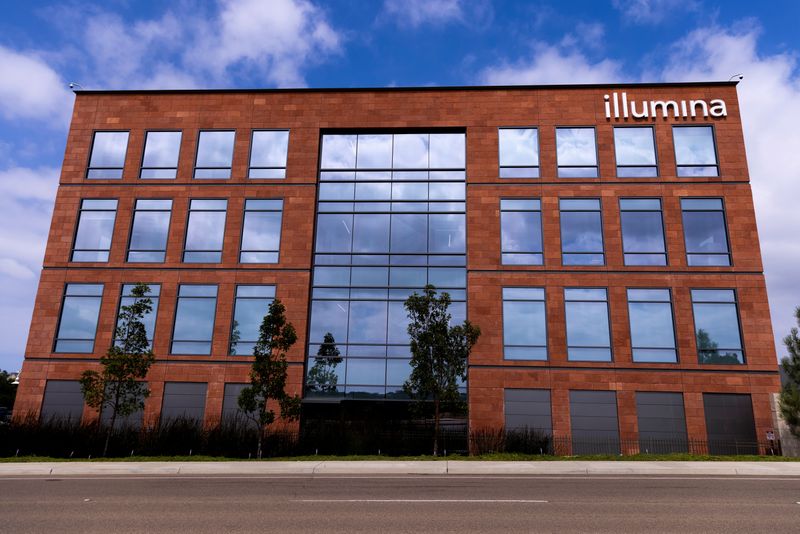By Foo Yun Chee
BRUSSELS (Reuters) - Illumina (NASDAQ:ILMN)'s acquisition of biotechnology company Grail will likely be blocked by EU antitrust regulators because of concerns about concessions offered by the U.S. life sciences firm, people familiar with the matter said on Wednesday.
There are doubts whether the concessions offered last week to address the European Commission's concerns about the $8 billion cash-and-stock deal will boost competition, the people said.
Illumina has offered rivals royalty-free global licences for some of its patents and a three-year patent truce with Chinese rival BGI in Europe in a bid to address EU antitrust concerns over its acquisition of Grail, other people familiar with the matter said.
The U.S. life sciences company submitted the concessions to the European Commission last week.
They consist of royalty-free global licences to rivals of next-generation sequencing technology and equipment and a pledge not to pursue any patent litigation against BGI in Europe, the sources said.
The EU antitrust watchdog had sought feedback from rivals and customers, giving them until Tuesday to do so, they said.
The Commission, which is scheduled to decide on the case by Sept. 12, declined to comment on its decision or the concessions.
Illumina said it would continue efforts to show the Commission that the deal is pro-competitive and in the best interests of patients in Europe and elsewhere.
The company may struggle to win over the EU antitrust enforcer as it has only offered a narrow range of patents, some of the sources said.
The U.S. Federal Trade Commission is suing to stop the deal.
The patent truce offer with BGI came after Illumina reached a deal with the Chinese genomics company on a three-year litigation standstill in the United States.
The companies have been embroiled in a global legal battle over their respective sequencing technologies, with court cases in countries including Germany, Denmark, Switzerland, and Turkey.

Illumina had offered concessions in January, which included price cuts and giving rivals' continued access to its technologies, but that failed to convince the EU antitrust watchdog, people familiar with the matter told Reuters.
In separate proceedings, the company risks a hefty fine of as much as 10% of its global turnover for jumping the gun and closing its takeover of Grail in August last year without waiting for the EU green light.